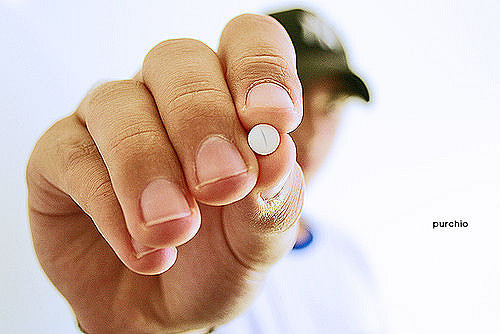In the medical and pharmacological world, there is a curious phenomenon known as the placebo effect, in which a seemingly real medical treatment elicits either a negative or positive response in those treated due to patient’s psychological belief. Clinical studies that investigate the effectiveness of particular drugs often use a placebo, a medically ineffective drug or pill, with the control group and the experimental group (tested group with the actual drug) as a comparison to see whether the actual drug’s effectiveness is because of the drug or actually the patients’ own psychological placebo effect. While this phenomenon is a known effect in the medical world, no one really has an explanation as to why people respond differently to placebos.
Image Source: Min-Chieh Chang
Looking into genetics, researchers found a correlation between the strength of the placebo effect and single nucleotide polymorphisms (SNPs), a type of genetic variation, in certain pathways or receptors. Altogether, 11 genes were found to be correlated to placebo strength: five in dopamine systems, four in serotonin system, one in opioid system, and one in endocannabinoid system. These genetic mutations correlate with how strongly a person is affected by the placebo because of each pathways’ tie to reward and/or consciousness; any mutations may present significant changes in patients’ belief in drug effectiveness and may or may not create a placebo effect.
Equipped with new understanding as to how strongly and randomly placebo effect influences clinical studies and trials, genetic screens can be used to select a uniform set of participants. This way, people enrolled in future drug trials will present normalized responses without too much influence from placebo effect, thereby clarifying whether the tested drug actually has a real effect on the body. Though this a small step forward, it is still a step toward to a day when we may actually be able to manipulate the placebo effect genes to enhance drug effectiveness.
Feature Image Source: placebo by Rodrigo Purchio










